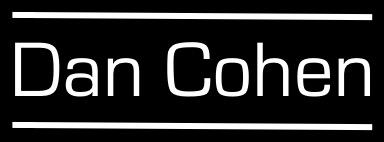My colleague Zach Schrag wrote a guest post on Mike O’Malley’s blog two weeks ago with some significant criticisms of what we are trying to do with PressForward. He expressed a general worry that we were out to destroy a proven system of scholarly review, and a particular worry that we were casting off what is often called “developmental editing,” or the sharp eye of a savvy editor making suggestions for improvement. It’s a serious and important point: few of us can produce flawless arguments and prose from scratch, and can use the help of others to sharpen our writing and ideas.
As I wrote in a quick comment on Zach’s piece, I do not disagree that good editors can be crucial to the advancement of scholarship. It’s just that I do not believe Zach’s wonderful personal experience with an editor is very representative of the experience of scholars in 2011, or presents an accurate and whole picture of the cost, labor, and landscape of scholarly communication.
Here’s Barbara Fister with a recent report on what those at university presses have to say about the state of developmental editing:
I assumed that editorial work was a massive time commitment for university press editors, but the people I talked to said manuscripts need to be very nearly ready for publication these days; most editors don’t have the time for developmental or line editing. Authors increasingly need to get that work done themselves, either through writing groups or by hiring their own editors. Authors may also have to pitch in to pay for indexing, an important feature of scholarly monographs. Publishers at our discussion were not convinced that copy editing was worth the cost; the more ready a book is to go to print, the better. Design was once a standard function, but increasingly designs are templates that can be applied to any number of books. In general, work done on books once acquired seems to play a much smaller role than identifying authors to publish and then helping an audience discover the published book.
This jibes with my view of the situation: the world of fussy, behind-the-scenes editing that Zach treasures is in decline because of its costs, which were once masked by less-lean library purchasing budgets that created surpluses for presses which could be devoted to greater fussing. (Not worth getting into here, but it’s been many years since I experienced any decent developmental editing with my books or articles at presses or journals—please agree or contradict me by adding your experiences in the comments.) Worse, with additional cost-cutting on the horizon, I suspect that Zach’s ideal form of a paid, dedicated editor is unsustainable. (The sciences seem to have already figured this out; the most successful recent publications are venues like PLoS ONE and its clones from commercial publishers, which merely check for technical competency rather than content quality, and rely on the community of scientists to determine that quality.)
But let me agree with Zach that developmental editing is useful in history and the humanities. Where will it come from in the future? Zach and others believe that the only possible system is the system we know, with a dedicated editor paid for by publication gating fees. Here is where we diverge. If we look at the total picture of peer view and scholarly communication—not just in these sad days of recession and cost-cutting, but in prior generations as well—most of the developmental editing has actually come from unpaid colleagues and peers in our discipline, who are willing to give our drafts a read, or listen to us give early versions of our ideas at conferences or over coffee. Developmental editing has always largely resided in the gift economy of the scholarly community. Indeed, Zach runs our Levine Seminar series at Mason, where faculty present drafts of articles or book chapters to each other, receiving helpful criticism.
Surfacing, supporting, and expanding that gift economy is one of the goals of PressForward. Although those in the digital humanities often point to big experiments in open review—Jack Dougherty and Kristen Nawrotzki’s Writing History in a Digital Age, for instance, recently received hundreds of high-quality comments—it’s also important to recognize the increasing frequency of more modest experiments on the web.
For instance, this summer, while working on an article on a fourteenth-century motet, the Oxford musicologist Elizabeth Eva Leach posted a draft to her blog for comment. She didn’t receive hundreds of comments, but some helpful colleagues interested in the subject matter read the draft carefully and wrote in suggestions for improvement. Those little moments happen every day on the open web, and I suppose where Zach and I disagree is in their value. I’ve seen some extraordinarily extensive comments that easily equal the comments of a dedicated editor, whereas Zach worries that without that editor’s dedication, some scholars will receive no feedback.
With PressForward, we are not only trying to aggregate and curate high-quality, vetted scholarly content; we are trying to aggregate the attention of scholars so we can point to pieces like Leach’s, which in turn will receive more in-depth commentary. My view, perhaps colored by six years of blogging, is that there are many intelligent voices out there prepared to provide criticism. And the more commenters, the wider the range of views and suggestions, as opposed to the voice of a lone editor.
In short, far from destroying what is good and true, open publication with a layer of review seems like an obvious and effective way to retain some measure of developmental editing in a changing world of scholarly communication.

Leave a Reply
You must be logged in to post a comment.